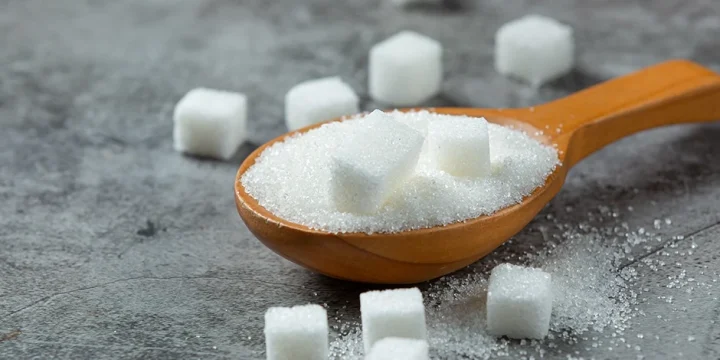Masturbation is often thought to lower testosterone levels, suggesting it can lead to serious health problems.
I was concerned about the effects of masturbation on my goals to increase muscle mass and maintain healthy testosterone levels.
As a result, I decided to conduct research and go through all the clinical studies and scientific evidence to clarify those claims.
In this article, I'll get right to the point and explain how masturbation affects testosterone levels and your overall health.
Let’s begin.
Quick Summary
- Masturbation can temporarily decrease testosterone levels, but promotes higher levels after a period of abstinence.
- Masturbation offers several health benefits, including stress relief, improved sleep, treatment for some erectile dysfunction cases, and reduced cancer risks.
- A study found that men who ejaculated at least 21 times per month had a 20% lower risk of prostate cancer.
- Based on the evidence, I believe that occasional masturbation seems to be beneficial for overall health and testosterone levels, contrary to common misconceptions.
The Link Between Masturbation And Testosterone

Scientists have conducted several clinical trials and studies to understand the relationship between masturbation and testosterone better.
In these studies, scientists have also provided important information about sexual activity and abstinence effects on masturbation and testosterone.
Reflecting on my own experiences, I recall feeling more energized after intimate moments with my partner compared to solo sessions. This aligns with a 1972 study I came across, where testosterone levels were significantly higher after sex but not after masturbation [1].
Another study of men with erectile dysfunction by the International Journal of Andrology found that subjects who lack sexual activity are associated with a reversible reduction in testosterone levels after sexual resumption [2].
Furthermore, one study by the National Institte of Health (NIH), on the endocrine response to masturbation-induced orgasm in healthy men following 3-week sexual abstinence reveals that while acute abstinence does not affect the neuroendocrine response to orgasm, it increases testosterone levels in males [3].
While masturbation was not associated with changes in testosterone levels in these studies, researchers found that sexual activity after the 3-week abstinence can increase testosterone levels.
Does Masturbation Have Negative Effects On Testosterone?
Masturbation-induced hormone changes can have some short-term effects on the serum testosterone level in the body.
Reflecting on my own experiences, I've noticed times when excessive masturbation seemed to dull my sensations. This personal observation is supported by research from Medical News Today, which indicates that aggressive or frequent masturbation can lead to decreased sensation, affecting sexual motivation and activity, and potentially increasing stress levels [4].
The claim that masturbation reduces testosterone could be because your cortisol levels rise when you are stressed, slowing your body's ability to produce testosterone.
"Stress can cause lower testosterone levels and then turn into a vicious cycle — the lower testosterone level can cause stress, which can cause testosterone numbers to drop even lower,"
- S. Adam Ramin, MD, Urologist & Medical Director of Urology Cancer Specialists in Los Angeles
Masturbation can cause anxiety and depression due to guilt stemming from feelings of immorality, religious beliefs, and a sense of unfaithfulness.
What Are The 4 Benefits Of Masturbation To Health?

From my own journey, I've found masturbation to be a surprisingly effective stress reliever. It's not just a personal anecdote; there's substantial evidence showing that masturbation can indeed help with stress relief and improve sleep, both of which are crucial for maintaining healthy testosterone levels and a robust sex drive.
1. Enhance Mental Health
Researchers from Medical News Today found that self-stimulation can improve mental health by increasing positive mood hormones such as dopamine, oxytocin, and endorphins [5].
By elevating these feel-good hormones, your body's stress level drops along with your blood cortisol. Research from Everyday Health suggests that lower stress hormone levels can significantly affect testosterone and sexual performance [6].
2. Promote Better Sleep
Sexual arousal can help you improve your sleeping habits by causing your brain to release hormones and neurotransmitters that aid in relaxation and sleep.
During an orgasm, the body releases serotonin and oxytocin. Furthermore, as per research by HealthLine, your body naturally produces melatonin at night as part of the sleep-wake cycle [7].
While serotonin helps stabilize your mood and feelings of well-being, melatonin binds to brain receptors to help reduce nerve activity, preparing you for sleep.
3. Help Treat Erectile Dysfunction (ED)
Masturbation has been reported to temporarily help men with mild ED get an erection. Contrary to the belief that masturbation reduces men's sexual drive, masturbation can help a man achieve a better erection and enjoy sexual intercourse.
4. Reduce Cancer Risks
In men, regular ejaculation has been shown to lower the risk of prostate cancer. A 2016 study by NIH found that men who ejaculated at least 21 times per month had a 20% lower risk of prostate cancer [8].
Also, in a 2003 study by NIH, researchers discovered a similar link between frequent ejaculation and a lower risk of prostate cancer [9].
Why Do Low Testosterone Levels Occur?

Low testosterone levels in the blood, medically termed hypogonadism, typically occur when there is a hormonal imbalance, resulting in an impaired testicular function and defective testosterone synthesis.
Also, when diagnosing hypogonadism, it is crucial to observe symptoms such as poor sex drive, muscle loss, low energy, and body hair loss. Here are some causes of low testosterone:
Age
Research from Cleveland Clinic suggests that men's average T levels may begin to decrease naturally after the age of 30. The levels of T are expected to decline at a rate of about 1% per year, which can significantly impact adult men's sexual health throughout their life [10].
Sexual Activity
A study from ScienceDaily found that older men with infrequent sexual arousal, not erectile dysfunction, may decrease testosterone levels [11]. Furthermore, since low T levels are linked to poor sexual function, masturbation may help to improve its level in the short term.
Nutrition and Dietary Patterns
One study by NIH revealed an increased risk of low T levels in the high-frequency consumption of bread and pastries, dairy products, and desserts. Also, low intake frequency of homemade foods and dark green vegetables were significantly associated with an unhealthy body composition resulting in low T levels [12].
Stress and Anxiety
Any form of stress and anxiety can make your adrenal glands release cortisol, thus elevating its level in the bloodstream. Chronically elevated cortisol levels can cause men's impotence and loss of sexual desire by inhibiting testosterone synthesis.
Chronic Illnesses
Accordin to research from EverydayHealth, low testosterone levels are also correlated with the side effects of medications to treat several chronic illnesses, including diabetes, liver, lung, or kidney disease, metabolic disorders, and chemotherapy for cancer [13].
Can Sexual Abstinence Improve Low Testosterone Levels?

Studies are showing that abstinence from sex can improve low testosterone levels.
The Zhejiang University research on the relationship between ejaculation and testosterone level in men showed that testosterone increases to a massive 145.7 percent of their baseline levels during ejaculation following abstinence of seven days [14].
Another study by NIH found that when men masturbated after three weeks of abstinence from all sexual activity, their testosterone was significantly higher than masturbating during a non-abstinence period [15].
These studies further demonstrate that sexual release and orgasm after short or long-term abstinence can significantly increase testosterone levels.
Related Articles:
Comparative Analysis with Other Activities
Masturbation has a transient effect on testosterone levels, with a brief increase followed by a return to baseline. In contrast, regular exercise, especially resistance training, promotes long-term testosterone elevation and muscle growth.
Dietary factors, including sufficient protein and healthy fats, contribute to hormonal balance. Quality sleep is crucial, as insufficient rest disrupts hormonal regulation, potentially lowering testosterone.
Alternatively, you can choose from our tested testosterone boosters for men.
While masturbation's impact is minimal compared to consistent exercise, proper nutrition, and adequate sleep, a holistic approach to lifestyle factors is essential for maintaining optimal testosterone levels and overall well-being.
FAQs
Does ejaculating a lot lower testosterone?
No. Ejaculating a lot does not lower testosterone. Ejaculation causes alterations in prolactin (rise) and dopamine (short-term reduction), but not in testosterone. Although prolactin and dopamine are both connected with testosterone, they don't appear to have a significant impact on testosterone levels.
What lowers testosterone the most?
Lack of sleep lowers testosterone the most. A lack of sleep may drastically decrease testosterone levels. These low levels have an impact on more than simply your libido. It has also been associated to decreased energy, poor attention, fatigue, diminished strength, and increased stress.
References:
- https://joe.bioscientifica.com/abstract/journals/joe/52/1/joe_52_1_005.xml
- https://onlinelibrary.wiley.com/doi/full/10.1046/j.1365-2605.1999.00196.x
- https://pubmed.ncbi.nlm.nih.gov/11760788/
- https://www.medicalnewstoday.com/articles/320265#masturbation-side-effects
- https://www.medicalnewstoday.com/articles/masturbation-effects-on-brain
- https://www.everydayhealth.com/low-testosterone/guide/
- https://www.healthline.com/nutrition/melatonin-and-sleep
- https://www.ncbi.nlm.nih.gov/pmc/articles/PMC5040619/
- https://pubmed.ncbi.nlm.nih.gov/12887469/
- https://my.clevelandclinic.org/health/diseases/15603-low-testosterone-male-hypogonadism
- https://www.sciencedaily.com/releases/2015/03/150308091408.htm
- https://www.ncbi.nlm.nih.gov/pmc/articles/PMC6266690/
- https://www.everydayhealth.com/low-testosterone/guide/causes/
- https://pubmed.ncbi.nlm.nih.gov/12659241/
- https://www.ncbi.nlm.nih.gov/pmc/articles/PMC2815233/
About The Author
You May Also Like






